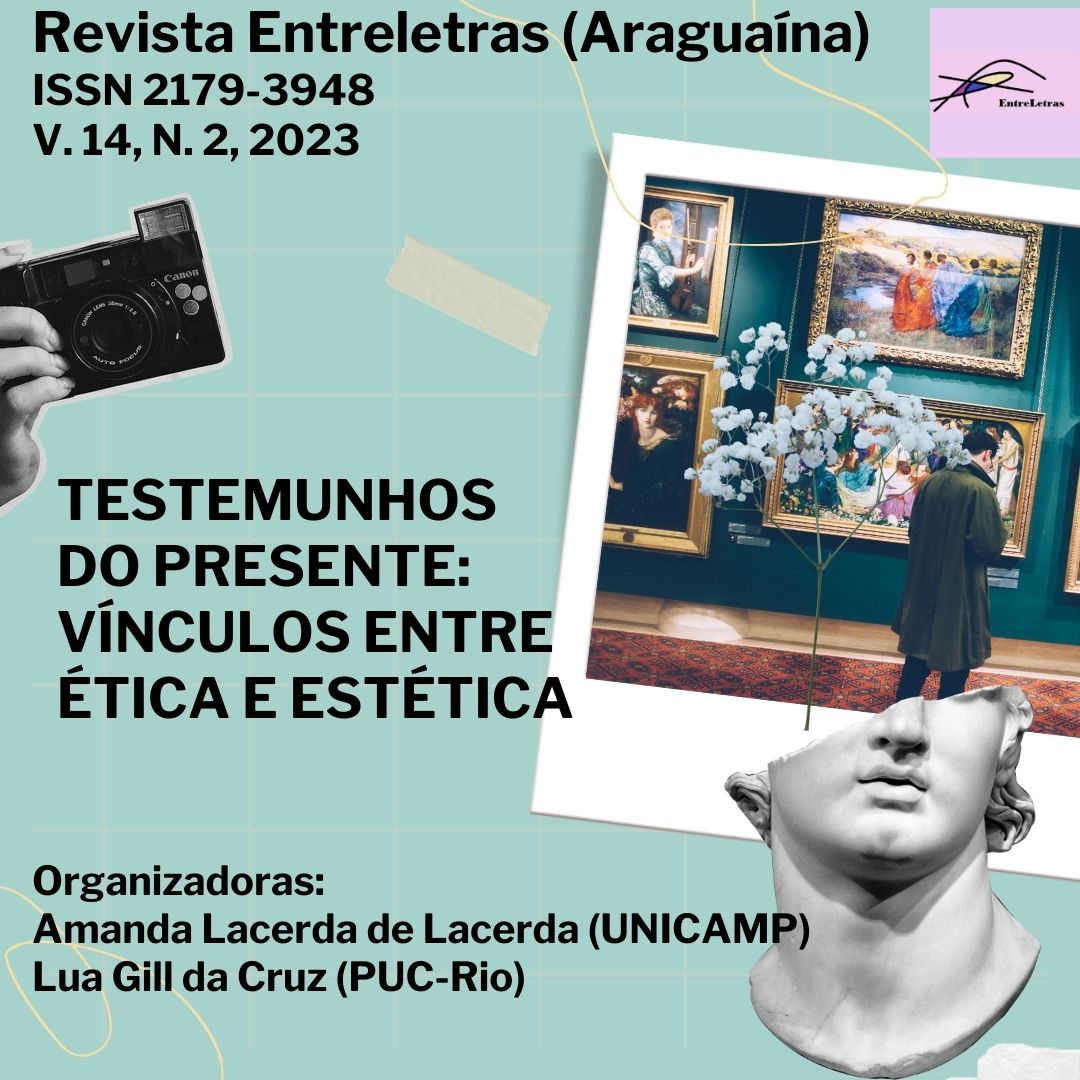THE TIME OF TRANSMISSION IN A CHAVE DE CASA, BY TATIANA SALEM LEVY AND A RESISTÊNCIA, BY JULIÁN FUKS
POSTMEMORY, SECOND GENERATIONS AND INHERITANCE
DOI:
https://doi.org/10.20873/uft2179-3948.2023v14n2p41-67Keywords:
Military dictatorship, brazilian contemporary literature, second generation, intergenerational testimony, testimonyAbstract
More than fifty years after the coups d'état in Latin America, there is a "generational turn", in Leonor Arfuch's terms, in contemporary production. Through a "second generation" writing, authors born after the historical period, heirs of the traumas of other(s), reopen the historical and familiar past in literature. This is the case in the novels by Tatiana Salem Levy, A chave de casa, and Julián Fuks, A resistência, in which authors who are sons and daughters of those persecuted during the military regimes take the word about this past. This article will seek to discuss how literature deals with this temporal displacement, observing especially how the trauma of dictatorial violence continues to produce subjective and social effects in the following generations and how it manifests itself literarily. It will also look at trauma theory and the transmission of traumatic events to subsequent generations.
Downloads
References
BOLLAS, Christopher. The shadow of the object: psychoanalysis of the unthought known. New York: Columbia University Press, 1987.
BRIZUELA, Natalia. Depois da fotografia: uma literatura fora de si. Digital ed. Rio de Janeiro: Rocco, 2014.
CARUTH, Cathy. Modalidade do despertar traumático (Freud, Lacan e a ética da memória). SELIGMANN-SILVA, Márcio; NESTROVSKI, Arthur (orgs.). Catástrofe e Representação. São Paulo: Escuta, 2000.
DA MATA, Anderson Luís Nunes. Como vai a família? As reconfigurações da instituição familiar no imaginário do romance brasileiro contemporâneo. Iberical: Revue d’études ibériques et ibéroaméricaines., n. 2, p. 77–86, 2014.
DERRIDA, Jacques. Espectros de marx o estado da divida, o trabalho do luto e a nova internacional. Rio de Janeiro: Relume-dumara, 1994.
FREUD, Sigmund. O homem Moisés e a religião monoteísta. Porto Alegre: L&PM, 2014.
FUKS, Julián. A ocupação. São Paulo: Companhia das Letras, 2019.
FUKS, Julián. A resistência. São Paulo, SP: Companhia Das Letras, 2015.
FUKS, Julián. Procura do romance. Rio de Janeiro: Record, 2011.
GATES-MADSEN, Nancy J. Trauma, Taboo, and Truth-Telling: Listening to Silences in Postdictatorship Argentina. University of Wisconsin Pres, 2016.
HALBWACHS, Maurice. A memória coletiva. Tradução Beatriz Sidou. São Paulo: Centauro, 2006.
HIRSCH, Marianne. Family frames: photography, narrative, and postmemory. Cambridge, Mass: Harvard University Press, 1997.
HIRSCH, Marianne. Objects of return. The Global and the Intimate: Feminism in Our Time, p. 145, 2012a.
HIRSCH, Marianne. The generation of postmemory. Poetics today, v. 29, n. 1, p. 103–128, 2008.
HIRSCH, Marianne. The generation of postmemory: writing and visual culture after the Holocaust. New York: Columbia University Press, 2012b.
HOFFMAN, Eva. After such knowledge: memory, history, and the legacy of the Holocaust. New York: Public Affairs, 2004.
JELIN, Elizabeth. Los trabajos de la memoria. Madrid: Siglo XXI de España Editores : Social Science Research Council, 2002. (Coleccíon Memorias de la represión, 1).
LEVY, Tatiana Salem. A chave de casa. Rio de Janeiro: BestBolso, 2013.
LUDMER, Josefina. Aqui América latina: uma especulação. Tradução Rômulo Monte Alto. Belo Horizonte: Ed. UFMG, 2013. (Humanitas).
SCARRY, Elaine. The body in pain: the making and unmaking of the world. New York: Oxford University Press, 1985.
SCHWAB, Gabriele. Haunting legacies: violent histories and transgenerational trauma. New York: Columbia University Press, 2010.
SCHWAB, Gabriele. Unofficial wars: the politics of disappearance. European Review, v. 22, n. 4, p. 642–651, 2014.
SONTAG, Susan. Sobre fotografia. Tradução Rubens Figueiredo. São Paulo: Companhia das Letras, 2007.
Downloads
Published
How to Cite
Issue
Section
License
Copyright (c) 2023 EntreLetras

This work is licensed under a Creative Commons Attribution 4.0 International License.
Os autores mantêm os direitos autorais e concedem à revista o direito de primeira publicação, com o trabalho simultaneamente licenciado sob a Creative Commons 4.0 que permite o compartilhamento do trabalho com reconhecimento da autoria do trabalho e publicação inicial nesta revista.
Os autores têm autorização para assumir contratos adicionais separadamente, para distribuição não-exclusiva da versão do trabalho publicada nesta revista (ex.: publicar em repositório institucional ou como capítulo de livro), com reconhecimento de autoria e publicação inicial nesta revista.










